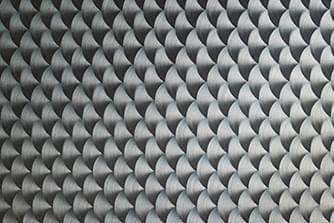
Speed Six Continuation Series completes test programmme with Goodwood finale
Speed Six Continuation Series completes test programmme with Goodwood finale
- Speed Six Continuation Series successfully completes gruelling test and durability programme, whilst debuting at Goodwood’s Festival of Speed
- Meticulously created to the exact specifications of the 1930 Speed Six – and ready to race once again
- Car Zero driven for over 8000 km of varied road conditions, speeds and surfaces at Millbrook Proving Ground
- Six hours’ continuous racing simulation at Goodwood Motor Circuit at competitive speeds
- Scrutineered by Motorsport UK to FIA Appendix K regulations to confirm eligibility for races and trials
- All-new 6½-litre engine tested to the limit over two 20-hour continuous bench test cycles
- Work underway on the 12 customer Speed Six Continuation Series
(Crewe, 17 July 2024) This year’s Goodwood Festival of Speed saw the global dynamic debut for Mulliner’s Speed Six Continuation Series. With varying weather conditions, the Bedford Grey 205 bhp ‘Factory Works’ car – the second of two development cars - completed eight separate runs up the famous Goodwood hill climb without any hesitation or concern. This achievement marked the last significant shakedown activity in the development of Mulliner’s latest masterpiece.
Car Zero, the main engineering test prototype of the Speed Six Continuation Series, has passed a gruelling series of tests on the dyno and racetrack, both with flying colours. Work now starts on the twelve customer cars, each of which will be trimmed and finished to its owner’s specifications from a choice of period-correct finishes and materials.
Alpine passes, pavé and unmetalled roads
Following an initial 1,000-kilometre shakedown local to Mulliner’s base in Crewe, Car Zero faced its next challenge; 8,000 km of intensive mileage accumulation at Millbrook Proving Ground. The test schedule included Belgian pavé, the sinuous Alpine course and multiple Vmax (top speed) test runs, as well as unmetalled surfaces of a kind that would have been familiar to Bentley drivers of the 1920s. By the end of the test programme Car Zero had covered 11,700 km of intensive test mileage, enough for ten return journeys from Crewe to Le Mans, and the equivalent of 30,000 km in normal driving.
Six races in one session
Mileage accumulation complete, Car Zero was then passed to a team of pro drivers. Lapping Goodwood Motor Circuit at race speeds, Car Zero covered 500 km and 130 laps in a single session – equivalent to running six consecutive Vintage races at the Goodwood Revival. Throughout the test session, Car Zero performed impeccably, consistently matching recent Goodwood lap times of original pre-war Bentleys. Like Car Zero, all customer Speed Sixes will be scrutineered by Motorsport UK to the FIA Appendix K regulations, confirming that they have been produced authentically and are eligible to compete in the relevant competitions.
20 hour engine test - twice
The 6,597cc straight six engine of the Speed Six was designed by W.O. Bentley and powered the most successful Bentley race car of the Cricklewood era (1921-31). In period it developed around 200 brake horsepower, and the Mulliner team was at pains to follow the original specification and drawings exactly, creating the first brand new Speed Six engine in nearly 100 years from over 600 new components including engine block. The Mulliner Classic team had access to Crewe’s state-of-the art engine dynamometers and, working with the engineering team responsible for the new Continental GT’s 782 PS Ultra Performance Hybrid powertrain, devised a continuous 20-hour dyno test programme covering a range of engine speeds and loads. Even after two test cycles and 40 hours running, the new Speed Six engine delivered the set power and torque targets with total reliability.
Work in progress
Work on the first Speed Six Continuation Series customer cars is now under way at Mulliner Classic, with the first delivery scheduled for autumn. Though faithful to the design of the original, the Speed Six Continuation Series enjoy some advantages, as Mulliner Special Project Leader Ben Linde explains.
“Today’s machine tools are more accurate than the Cricklewood works could have achieved, and we also have the benefit of modern lubricants. Under test, oil consumption was negligible, even at race speeds. All the Speed Six Continuation cars will run happily on standard unleaded fuel, and new tyres with period correct tread which are readily available.”
Echoes of the past
On 22 June 1930, Bentley Chairman Woolf Barnato took the chequered flag at Le Mans at the wheel of a Team Bentley Speed Six. Together with co-driver Glen Kidston, Barnato had covered a then-record 2,930 km at 122.111 km/h. According to Ben Linde, each of the 12 Speed Six Continuation Series currently in the workshops of Mulliner Classic will be more than capable of emulating that feat. “The Speed Six was the pinnacle of Bentley race engineering of the 1920s,” he notes. “You could drive it to Le Mans, race for 24 hours, then drive home again with the winner’s trophy on the back seat. The Speed Six Continuation Series captures that spirit in a way that is faithful to the tools, techniques and engineering drawings of the time.”
- ENDS -


































